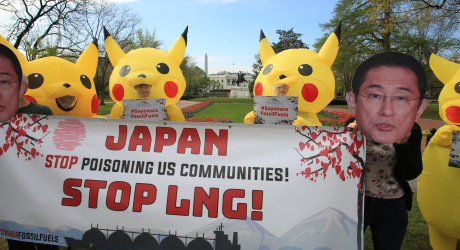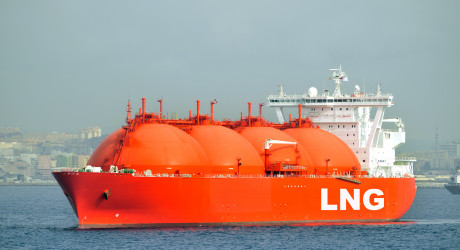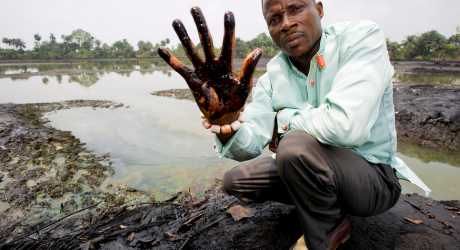GLOBAL POLICY
The Paris climate goals demand a rapid, just transition from fossil fuels to clean energy. We’re pushing governments to lead the way by adopting policies to end oil and gas production.
OVERVIEW OF WORK
In order to achieve climate goals, governments and other decision makers must support a just and equitable move away from fossil fuels. We are pushing for precedent-setting leadership from governments to put policies in place to manage the decline of oil and gas and ensure a just transition for fossil-fuel dependent workers and communities.
Building from a growing group of first mover governments, we are pressuring for increasing numbers of national and regional governments to end new licenses and permits for oil and gas production, and to develop plans to wind down their existing production over time.
LATEST PROGRAM POSTS
Japan is continuing to drive the expansion of fossil fuels across Asia and is derailing the transition to renewable energy. This harms communities and ecosystems, undermines energy security, and worsens the climate crisis. The facts speak for themselves.
A letter delivered to U.S. President Biden from 560+ organizations around the world applauded Biden's decision to halt pending LNG export approvals and called on him to expand the pause to halt all permitting of new LNG infrastructure and export projects.
Last month, it was widely reported that another chapter in Shell’s dirty and disastrous eighty-seven-year operations in the Niger Delta was coming to an end, with the company selling its onshore business.
While Manchin and his industry allies spread tired old myths about America saving the world from Putin and Chinese coal plants, the reality is the energy transition is already moving away from gas faster than most people think. That action needs to focus on a phase-out of all fossil fuel exports and protections and reparations for the frontline communities.
LATEST PROGRAM RESEARCH
This new briefing shows G20 government institutions were involved in financing 82% of new Liquefied Natural Gas (LNG) export terminal capacity built from 2012-2022, providing at least USD 78 billion in loans, guarantees, and equity investments for new LNG export terminal capacity projects.
New research shows stop funding fossils commitment forged at the 2021 UN climate summit is already shifting an estimated USD 5.7 billion per year out of fossil fuels and into clean energy. If all signatories fulfill their commitments, then a further 13.7 billion per year will be shifted out of fossil fuels and into clean energy.
This joint position launched by 175 civil society organisations from 45 countries calls on world leaders to end OECD export finance for oil and gas, and explains how it can be done.




